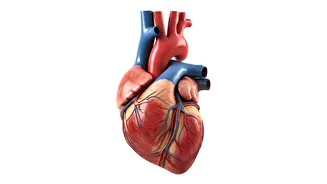Understanding Heart Failure
Heart failure, a significant health concern, occurs when the heart cannot pump enough blood to meet the body's needs. This condition, unlike a sudden heart attack,
develops gradually. Various factors can lead to heart failure, including coronary artery disease, high blood pressure, and heart valve problems. The impact is far-reaching, as the body struggles with reduced blood flow, causing symptoms that can diminish quality of life. Recognizing the early signs and understanding the underlying causes is critical for effective management and improved outcomes. It’s important to remember that heart failure isn't always about the heart stopping; it's about its diminished ability to work properly.
Recognizing Early Symptoms
Early detection of heart failure relies on recognizing specific symptoms. One of the most common early indicators is shortness of breath, especially during physical activity or when lying down. Another key symptom is persistent fatigue, which can result from the heart’s inability to deliver sufficient oxygen to the body. Swelling (edema) in the ankles, feet, or abdomen is also a significant warning sign, often caused by fluid buildup. Other symptoms include rapid or irregular heartbeats, persistent coughing or wheezing, and a reduced ability to exercise. Paying attention to these subtle changes in your body can help in early diagnosis and intervention, potentially preventing more serious complications and emphasizing the significance of regular health check-ups.
Effective Management Strategies
Managing heart failure involves a combination of medical treatments and lifestyle adjustments. Medications play a crucial role in improving heart function, controlling symptoms, and slowing the progression of the disease. Commonly prescribed drugs include ACE inhibitors, beta-blockers, and diuretics. Alongside medication, lifestyle changes are essential. This includes a heart-healthy diet low in sodium, regular moderate exercise, and weight management. Avoiding smoking and excessive alcohol consumption is also recommended. Monitoring your weight daily and tracking your symptoms can help manage the condition effectively. Regular check-ups with healthcare professionals are also crucial to ensure the treatment plan is optimized and to catch any changes promptly.
Diet and Lifestyle Changes
Making dietary adjustments is crucial in managing heart health. A heart-healthy diet limits sodium intake to reduce fluid retention and lowers the workload on the heart. It also emphasizes the consumption of fruits, vegetables, lean proteins, and whole grains. Regular exercise, tailored to your physical capabilities and under medical supervision, can strengthen the heart and improve overall cardiovascular health. Maintaining a healthy weight is vital, as obesity can worsen heart failure symptoms. Quitting smoking is imperative, and limiting alcohol consumption can also contribute to heart health. Educating yourself about these lifestyle changes and implementing them consistently is key to improving your health.
Seeking Timely Medical Care
Prompt medical attention is vital for anyone experiencing symptoms of heart failure. If you experience new or worsening symptoms like shortness of breath, chest pain, or swelling, seek immediate medical advice. Early diagnosis and treatment can significantly improve outcomes and prevent serious complications. Regular check-ups with your doctor are essential, even if you don't experience symptoms, especially if you have risk factors such as high blood pressure or a family history of heart disease. Adhering to the treatment plan prescribed by your doctor and communicating any concerns or changes in your symptoms are essential steps in managing the condition effectively. Proactive medical care is key to a long and healthy life.















